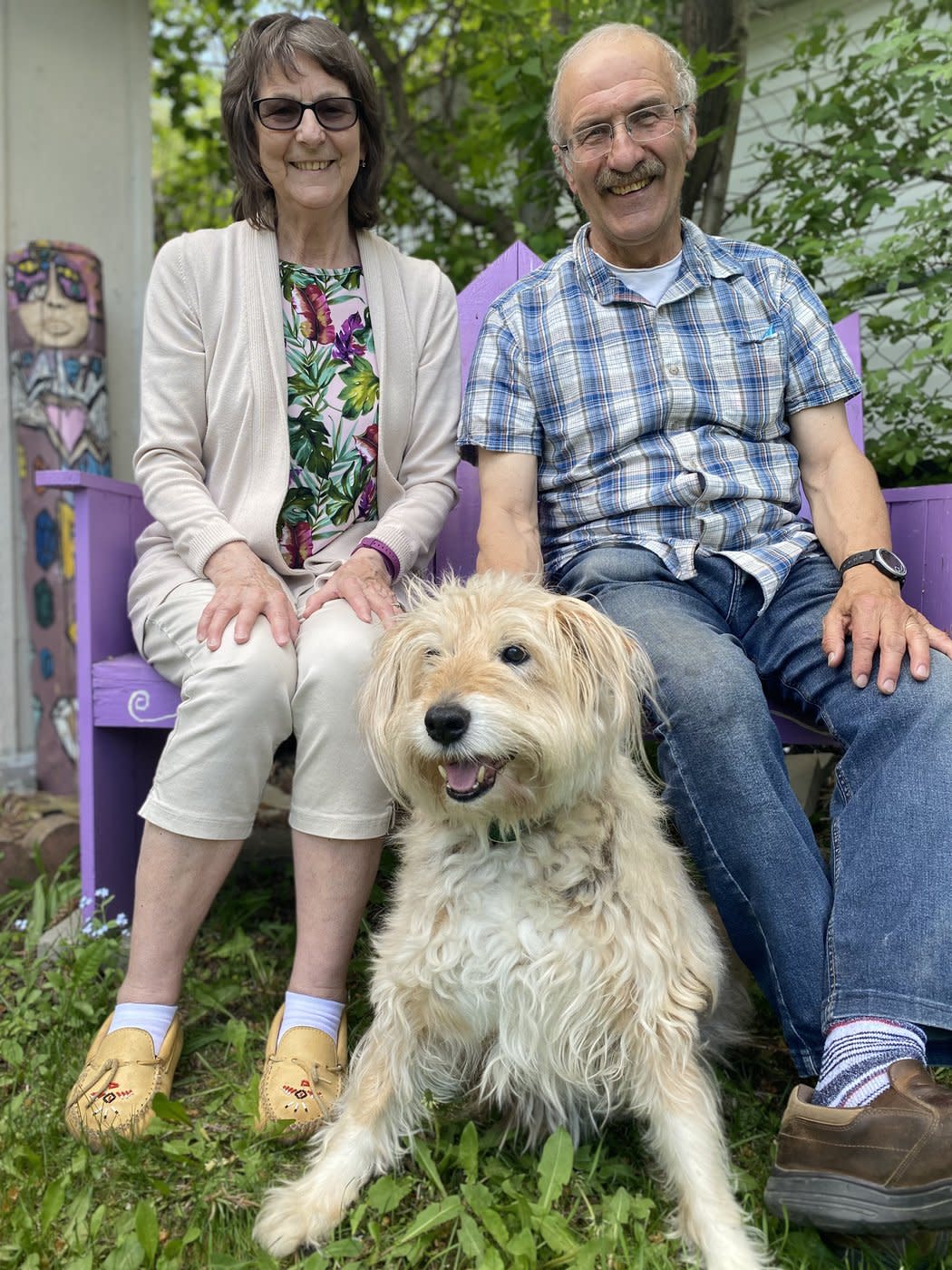You age - and so do your pets and the prospect of grief

With the average lifespan of 82.6 years, a Canadian potentially can know a succession of cats, dogs, fish, birds, reptiles or other pets. They share and enrich our lives and, hopefully, we do the same for them.
As we age, so too do our pets. It is a reality that their lives are (mostly) shorter. They have such vitality and then they don’t. We have to say goodbye to a string of fur friends. Fish get flushed and gerbils get a shoebox burial. It hurts; it is very painful for all ages to experience loss. Sometimes, the ache is greater than the death of a human friend.
Sarah Bernardi is a veterinary social worker at the Ontario Veterinary College Health Sciences Centre. She is quite unique in dealing with the end of life and the grief that often accompanies animal death, though there is an international association of veterinary social work.
“In the United States, it is more robust than here,” Bernardi has observed.
The University of Guelph is known for its work in agriculture, animal husbandry and all things related to agriculture. Of course, in the days of yore, it was farm animals and, indeed, horses, cattle, pigs and poultry are still a focus. The university is known for leading-edge teaching and research.
Bernardi, originally from North Bay, recalls the dogs her parents had and have. They were part of her family.
“We had rescue dogs. One for 17 years. We are a big family of animal lovers. I remember the whole family collectively crying when death happened. My parents still have dogs.
“It was 2017. I don’t have a romantic story about how I got involved in this, but I had a social work degree and had done my masters and wanted to work in gerontology. I saw a vet social work job come up and my mom said ‘What is that? That can’t be real.”
"I threw in an application and went down a rabbit hole. Working in the clinic and there was my first euthanasia that wasn’t my own pet. I knew this was where I belonged.
“Pet euthanasia should be gentle. We are a teaching hospital and today veterinarians receive more training on how to relate to both the pets and their people during a difficult time. We didn’t talk about it before. It’s hard. It’s awful. We know they don’t live as long as us.
“The concept of the human-animal bond is deep and historical. COVID really shone a light on how pets are part of the family systems. Older people with older pets is a very real scenario. If they go into hospital or long-term care what happens to their pet(s)?
"My grandma would not move into care unless her cat could come with her. She would still be in South Porcupine if that barrier was not removed.”
How does someone come into contact with Bernardi and book grief counselling?
“Referrals. That includes for owners of large animals. I am fully integrated into the clinical team here at (the college). What I do is support the human component. That can look like a couple of things, though I am not an emergency service.
"I mentioned grief counselling but the other half is what happens before. You are making big decisions, like talking about quality of life and then end of life. I’ll do video, by phone and in person. Sometimes, the grief doesn’t arrive until a year later.”
Bernardi said the service is free. “It is short-term with two 60-minute sessions and there is no expiry date on this … it is quite open-ended. Grief is not linear, nor timely. In some cases it takes time to process before you can talk. I have a resource list that can include a wide spectrum of support. I meet clients where they are at emotionally.
“Many people of any age are not ready to let go and are unwilling to consider euthanasia. They ask ‘How can I possibly live with myself if I make this decision?’ so they don’t.
"Medically assisted death is being discussed more openly for humans so change is happening. Just like how cremation now exceeds burial for humans … change is taking place. There is a lot of uncertainty and ambiguity around memorialization for pets. Right now it is interesting to see what is popping up around all this.”
The principal cremation services company is Gateway, but they are in bigger centres in Ontario and Alberta. “Theirs is a pet-only focus. We know them and work with them,” Bernardi said. “They know how difficult it is to say goodbye in a meaningful way.”
Gateway has multiple levels of service and many memorial products including urns. Your veterinary hospital may have a relationship and even pricing. Check out www.gatewaypetmemorial.com and view their two downloadable guides: “Pre-Planning and Pet Aftercare: Support Guide for Families” and “Coping with the Loss of a Companion Animal: Support Guide for Families”
For a more fulsome discussion on pet death, go to pettrust.uoguelph.ca.
The Local Journalism Initiative is made possible through funding from the federal government.
sud.editorial@sunmedia.ca
X: @SudburyStar
Hugh Kruzel, Local Journalism Initiative Reporter, The Sudbury Star


